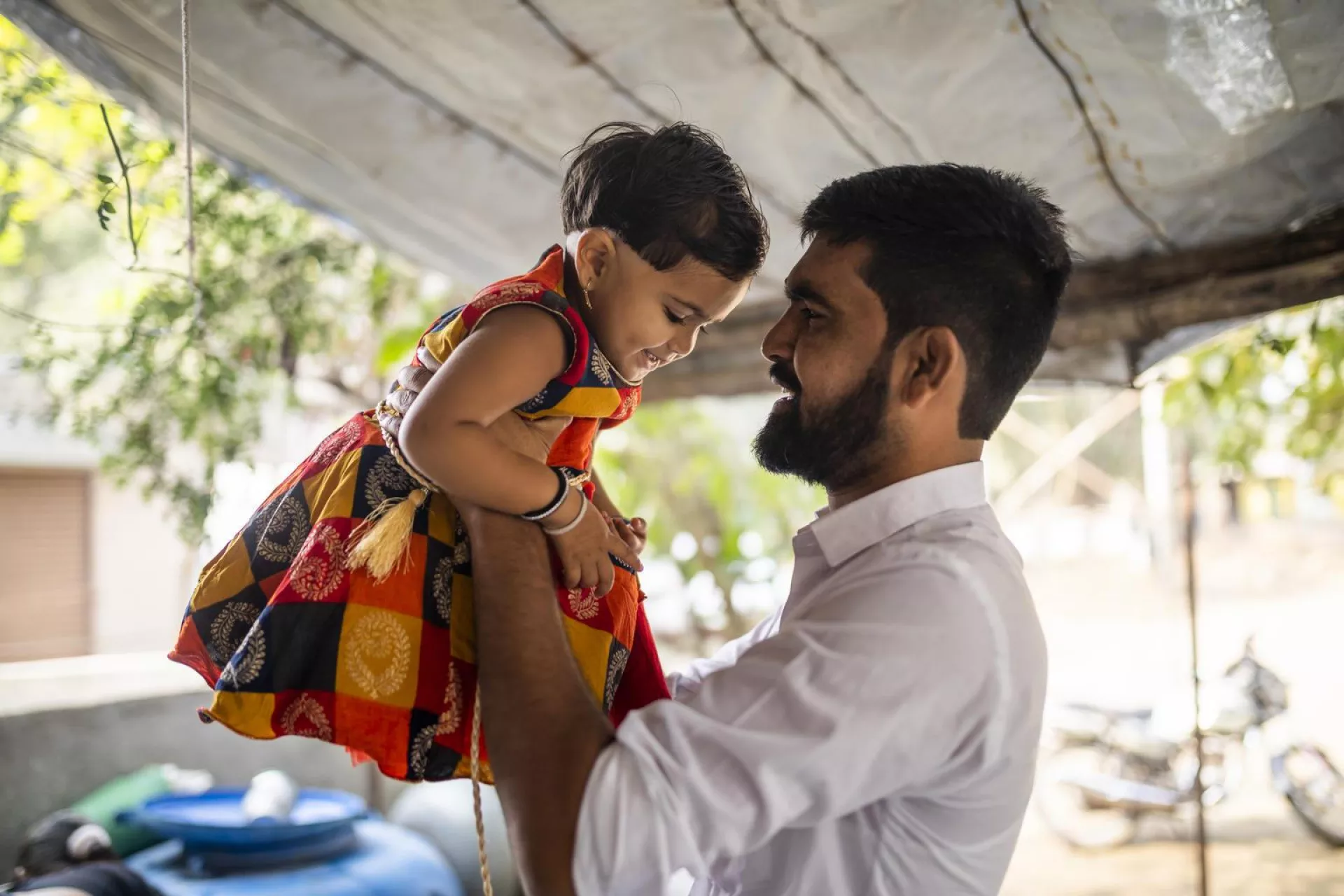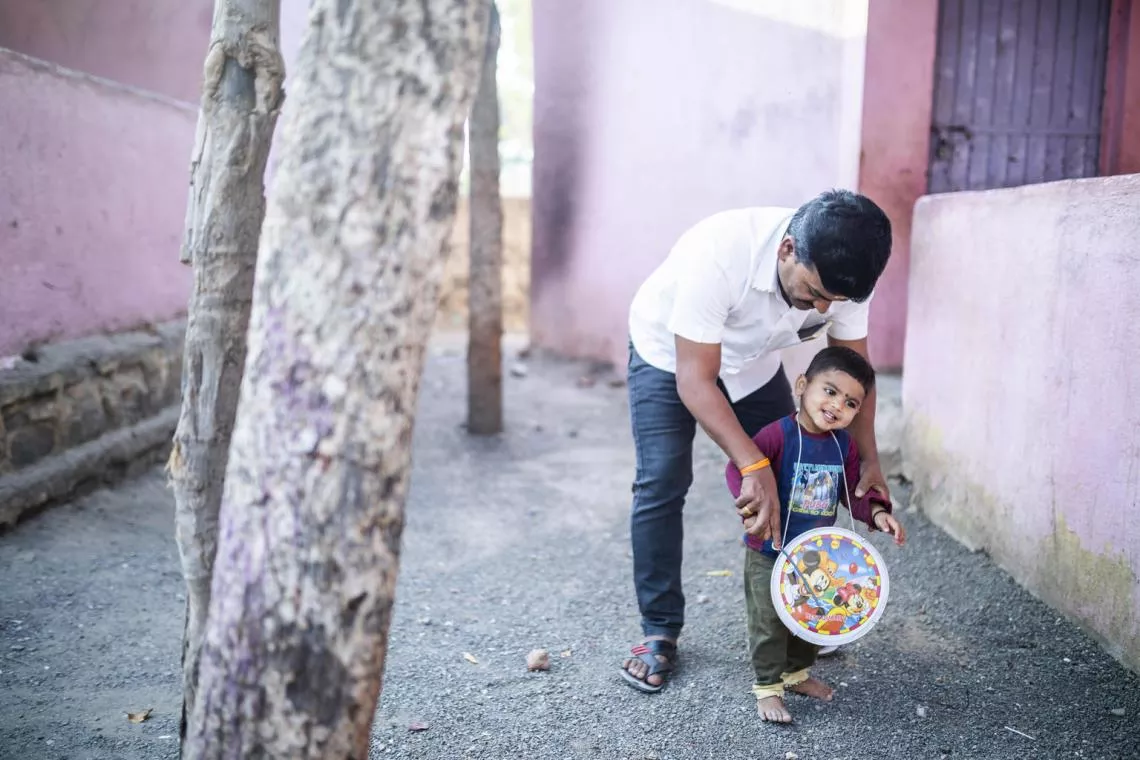Nurturing, loving and protecting
On Father’s Day, meet Yogesh and Ganesh. These loving young fathers from Maharashtra are now more involved in the day-to-day activities of their children.

Yogesh Ratna Kulkarni is usually busy in his role as a data operator. But like any other proud parent, Yogesh likes to talk non-stop about his young child’s achievements.
“She is only two, but she tells me everything she did at the Anganwadi Centre. She does lots of activities and has a lot of fun.”
Yogesh's engagement with his daughter Manyata now is a far cry from the day she was born. It took him a week before he finally held his daughter in his arms.
“I was too scared to hold her. And I had no idea what else to do. How to bathe her, interact with her or what to feed her,” says Yogesh

The young father didn't think much of his lack of knowledge. Most other fathers he knew, including his own, were hardly involved in the early moments of their children’s lives.
It was considered a ‘mother’s job primarily’. Only after Manyata started attending the Anganwadi Centre near their house in Karmad Village near Aurangabad in Maharashtra that he realized the significance of a father’s role in early childhood development.
In Aurangabad District young fathers, like Yogesh, are being guided by the District's Early Childhood Development Programme and are becoming more involved in the day-to-day activities of their children.
The Programme, supported by UNICEF and IKEA Foundation, is helping children in their early stimulation and more holistic development.

Only after Manyata started attending the Anganwadi Centre near their house in Karmad Village near Aurangabad in Maharashtra that he realized the significance of a father’s role in early childhood development.
“When I was a child, we would go to the Anganwadi centre just to get some food, but it’s very different now,” says Yogesh.
Motivated by activities at Anganwadi Centre, Yogesh has started engaging with his child more by doing things together – like making paper balls or rag dolls to interact with her and also teaching her new words in English and Marathi.
“Sometimes she asks me to make something specific, and I make it for her,” he adds.

“Fathers need to be involved, too, and more fathers realize that now.”
Like Yogesh, 29-year-old Ganesh Mhaske is now a much more involved father to his nearly two-year-old child, Vivek, than he was earlier.
“There are some things that I already knew – like the ability of an unborn child to hear things outside.”
The significance of a father’s involvement in early childhood development was, however, an aspect that Ganesh was unaware of. He assumed that raising a baby was primarily a mother’s job. The Anganwadi worker helped him realize otherwise.
UNICEF, in partnership with IKEA Foundation, has supported the implementation of the curriculum, like the one being followed at the Anganwadi Centre that Vivek attends. Through this programme, over 17,728 fathers and 156,155 children have benefited in Maharashtra.

“I came to know that 90 per cent of a child’s brain development takes place in the first five years of their life and that spending time with my son will encourage him to imitate my actions, learn and develop,” he says.
With a better understanding of the depth of his role as a father, Ganesh said that little things of day-to-day life that had earlier missed his attention – like his son’s diet – slowly became a point of interest for him.
He listens closely to what the Anganwadi worker has to say about the importance of a nutritious diet, made of locally available produce, in the development of his child.

“I came to know that 90 per cent of a child’s brain development takes place in the first five years of their life and that spending time with my son will encourage him to imitate my actions, learn and develop,”
"Earlier, it was only my wife who was involved with our child’s everyday activities. There was this misconception that only women need to be involved when the children are very young, but that’s wrong,” says Ganesh.
“Fathers need to be involved, too, and more fathers realize that now.”
For the mothers, their husbands’ greater involvement in raising their children – be it by bathing or feeding the children or playing with them – is a big plus.




